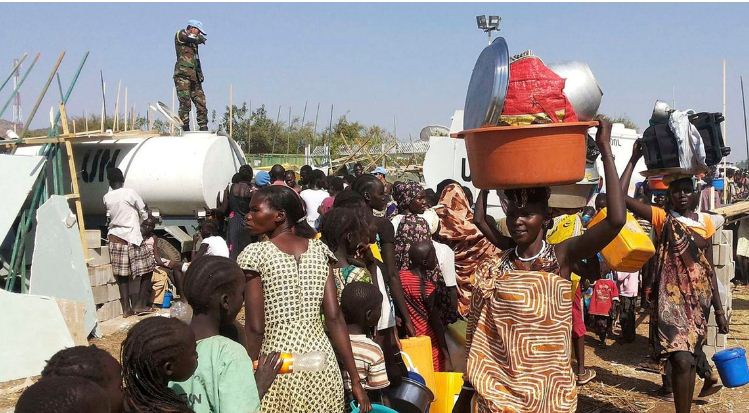The statement called on the warring parties in Sudan to halt hostilities immediately, respect international humanitarian law, and comply with Security Council resolutions…reports Asian Lite News
Fifteen countries, including the United Arab Emirates, Jordan, Morocco, Mauritania, Chad, The Comoros, Guinea Bissau, Seychelles, Senegal, Benin, Kenya, Sierra Leone, Uganda, Mozambique, and Nigeria, have jointly issued a statement expressing deep concern over the alarming food security situation and the risk of famine in Sudan.
The statement highlights a recent report from the Integrated Food Security Phase Classification (IPC) published on June 27, 2024. According to the report, Sudan is experiencing its worst levels of acute food insecurity ever recorded, with 25.6 million people affected and 14 areas at risk of famine.
The leaders expressed alarm at the “stark and rapid deterioration” in food security, particularly its severe impact on civilians, including thousands of children suffering from acute malnutrition. The statement also noted concerns about the prolongation of conflict exacerbating the crisis and affecting neighboring countries.
Emphasizing the need for a coordinated international response, the leaders pointed out the significant humanitarian challenges posed by deepening food insecurity, including displacement and migration issues. They reiterated the importance of facilitating humanitarian relief, in line with a UN Security Council resolution adopted on June 13, 2024.
The statement called on the warring parties in Sudan to halt hostilities immediately, respect international humanitarian law, and comply with Security Council resolutions. It also urged foreign actors to cease providing armed support or materials to the warring factions and to avoid actions that could escalate the conflict.
The leaders appealed to the international community to deliver a coordinated response to address the urgent needs in Sudan, scale up humanitarian aid, and support IPC recommendations to increase nutrition interventions, restore productive systems, and improve data collection.
The joint statement underscores the urgent need to address the crisis, prevent further deterioration, and work towards a sustainable resolution to the conflict in Sudan, ultimately aiming for true democracy and sustainable development for all its citizens.
ALSO READ-Blinken thanks Prabowo for Indonesia’s aid to Gaza

Leave a Reply